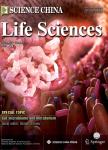An analytical biomarker for treatment of patients with recurrent B-ALL after remission induced by infusion of anti-CD19 chimeric antigen receptor T(CAR-T) cells
An analytical biomarker for treatment of patients with recurrent B-ALL after remission induced by infusion of anti-CD19 chimeric antigen receptor T(CAR-T) cells作者机构:Bio-therapeutic Department Chinese PLA General Hospital Molecular & Immunological Department Institute of Basic Medicine School of Life Sciences Chinese PLA General Hospital Department of Geriatric Hematology Chinese PLA General Hospital State key laboratory of kidney disease Chinese PLA General Hospital
出 版 物:《Science China(Life Sciences)》 (中国科学(生命科学英文版))
年 卷 期:2016年第59卷第4期
页 面:379-385页
核心收录:
学科分类:0710[理学-生物学] 0830[工学-环境科学与工程(可授工学、理学、农学学位)] 1002[医学-临床医学] 100214[医学-肿瘤学] 10[医学]
基 金:supported by the National Science Foundation for Young Scientists of China (81402567, 81402566, 81472612) Bejing Nova Program (XX2016086) China Postdoctoral Science Foundation Grant (201150M1533) Science and Technology Planning Project of Beijing City (Z151100003915076 to Weidong Han) National Natural Science Foundation of China (31270820, 81230061 to Weidong Han) People’s Republic of China Support Fund (2015PC-TSYS-2013 to Suxia Li)
主 题:chimeric antigen receptor T cells B cell acute lymphoblastic leukemia biomarker immunosurveillance microenvironment
摘 要:Anti-CD19 chimeric antigen receptor-modified T(CAR-T-19) cells have emerged as a powerful targeted immunotherapy for B-cell lineage acute lymphoblastic leukemia with a remarkable clinical response in recent trials. Nonetheless, few data are available on the subsequent clinical monitoring and treatment of the patients, especially those with disease recurrence after CAR-T-19 cell infusion. Here, we analyzed three patients who survived after our phase I clinical trial and who were studied by means of biomarkers reflecting persistence of CAR-T-19 cells in vivo and predictive factors directing further treatment. One patient achieved 9-week sustained complete remission and subsequently received an allogeneic hematopoietic stem cell transplant. Another patient who showed relapse after 20 weeks without detectable leukemia in the cerebrospinal fluid after CAR-T-19 cell treatment was able to achieve a morphological remission under the influence of stand-alone low-dose chemotherapeutic agents. The third patient gradually developed extensive extramedullary involvement in tissues with scarce immune-cell infiltration during a long period of hematopoietic remission after CAR-T-19 cell therapy. Long-term and discontinuous increases in serum cytokines(mainly interleukin 6 and C-reactive protein) were identified in two patients(Nos. 1 and 6) even though only a low copy number of CAR molecules could be detected in their peripheral blood. This finding was suggestive of persistent functional activity of CAR-T-19 cells. Combined analyses of laboratory biomarkers with their clinical manifestations before and after salvage treatment showed that the persistent immunosurveillance mediated by CAR-T-19 cells would inevitably potentiate the leukemia-killing effectiveness of subsequent chemotherapy in patients who showed relapse after CAR-T-19-induced remission.



